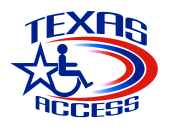The Accessibility for Ontarians with Disabilities Act (the “AODA”) was enacted in 2005 and mandates organizations in Ontario to comply with standards to become more accessible to the 24% of the Ontario population that currently suffers from a disability. The regulation moves to improve accessibility in five areas customer service, access to information, public transportation, employment, and outdoor public spaces. The Information and Communications Standard, however, encompasses websites, mobile applications, and digital content.
In a bid to ensure barrier-free access and have an accessible Ontario by 2025, AODA clamps on all government institutions and municipalities, educational institutions, businesses, and non-profits in the province. It covers explicitly websites and web content, web-based applications that an organization directly controls or controls through a contractual relationship that allows for modification of the product, and web content published on a website after January 1, 2012.

AODA requires all public sector organizations in Ontario, non-profits, and all private organizations with 50+ employees (i.e. large organizations) to make their web content accessible by meeting the ISO-recognized Web Content Accessibility Guidelines (WCAG) developed by the World Wide Web Consortium. The WCAG standard provides the technical specifications to improve web content, websites, and web applications on various devices and people with a wide range of disabilities. AODA references WCAG 2.0 AA, other than success criteria 1.2.4 Captions (live), and success criteria 1.2.5 Audio Descriptions (pre-recorded). Nevertheless, following the standard will help make websites accessible to disabilities such as blindness and low vision, learning and cognitive disabilities, deafness and hearing loss, users with speech disabilities, and web users in general.
Although web accessibility lawsuits continue to grow in the U.S., accessibility laws don’t explicitly declare penalties for non-compliance. Thankfully, the Ontario regulation happens to be one of the few digital accessibility laws with severe financial penalties for non-compliance. A corporation can be fined up to $100,000 per day of non-compliance while a private organization can be fined up to $50,000 for every day or part-day that the offense happens. Other than the high cost of digital discrimination, businesses face a backlash of a boycott and damage to brand reputation. Before then, AODA mandated liable organizations (with 20+ employees) to complete an Accessibility Compliance Report every three years following the required first compliance report in 2014. Good thing, that the AODA Accessibility Compliance Report deadline has now been extended to June 30, 2021 (from December 31, 2020), possibly because of the pandemic’s impact on organizations.
Through the ZoomInfo platform, we discovered that over 17,000 Ontarian organizations are liable to the January 1, 2021 deadline (i.e., have more than 50 workers). This is especially good for the people of Ontario with about 2.6 million disabled people. More than 40% of those are age 65 and most likely find it difficult to shop or complete activities online. More so, as the population ages, the number of disabled persons will continue to grow.
So, what can Ontarians expect from businesses?
- People with disabilities (PWD) are one of the largest age groups in Canada. With the baby boomers, Canada’s disabled population represents an economically influential group with a purchasing power of over $55 billion, as reported by the Ontario Chamber of Commerce.
- Other than capturing the disabled population, businesses will look to capture other consumers since web accessibility benefits everyone.
- Given how accessibility impacts users in general, businesses will look to capture friends and family members of PWDs who are likely to use the website through influence. PWDs and their relations form a group that has a massive $366 billion market.
The looming deadline makes it essential for organizations to take urgent steps to check their web properties for WCAG 2.0 AA compliance. Indeed, some businesses or organizations may not have had the AODA on their radar a year or even a few months ago, when they had less than 20 employees (for compliance reports) and less than 50 employees for compliance. However having hired more in recent times, they are now legally required to be compliant and complete the accessibility compliance report. At the time of this writing, Ontarian businesses and organizations have just about a few days to meet the January 1, 2021 deadline.
The most common disabilities in Canada are mental health-related, learning disabilities, mobility, and visual impairments. With 45% (1.12 million) of Ontarians with disabilities having reported suffering from mobility and flexibility-related disabilities, we expect a barrier-free internet interaction with the more than 17,000 businesses ensuring their websites and apps are:
- Keyboard compatible to help physically impaired users and blind users who interact with the web using screen readers and the keyboard.
- Understandable (through content with a good structure) with headings, lists, and separations to help those with cognitive and learning disabilities
- Have a clear layout with clear headings and design to help those with physical, cognitive, and learning disabilities.
- Have good color contrast to help the visually impaired, such as color-blinded users and old users who suffer from defects due to age.
- Properly coded to allow for voice recognition to help old users and those with physical disabilities.
- Properly coded to allow for text-to-speech, allowing websites to accommodate blind users and others with visual impairments such as dyslexia.
Organizations should not look at this as a burden—instead, an opportunity to become more accessible and inclusive for the people of Ontario and Canada. Having accessible websites and applications ensures a good user experience and can help brands reach families and friends of the disabled who contribute to the 78% of Canadians who are more likely to purchase from a business with a policy of hiring PWDs over a company that doesn’t according to the Ontario Chamber of Commerce research.
At the end of the day, AODA adoption would go a long way in setting the pace for other provincial accessibility laws in Canada, such as the Accessibility for Ontarians with Disabilities Act (AODA), the Accessibility for Manitobans Act (AMA), and the Nova Scotia Accessibility Act (Bill 59) to truly achieve a barrier-free country. The success of AODA will by far determine how soon we can achieve inclusive, barrier-free web access.







